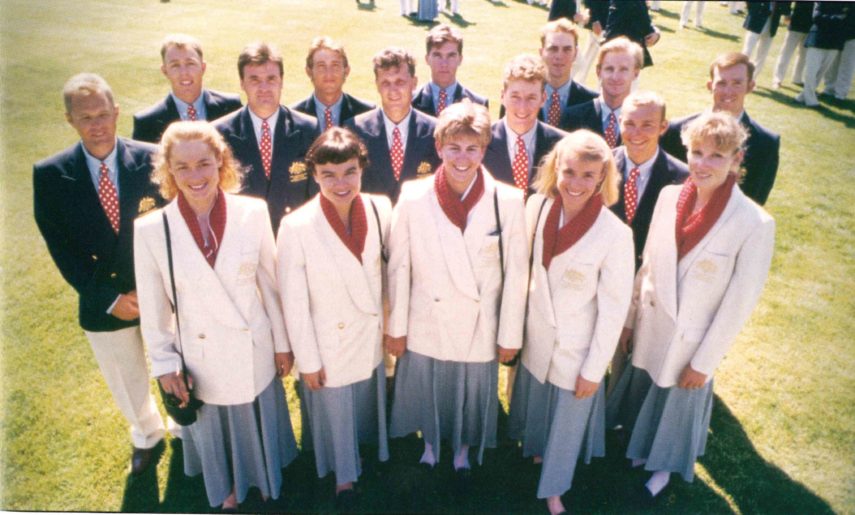
This week, in 1994, the Victoria Commonwealth Games were underway in Canada.
It was a very significant period in Australian sport – a year earlier Australia had been awarded the 2000 Olympic Games. There was intense anticipation of just which athletes would emerge and go on to be our stars in 2000.
There were very promising signs as Australia completely dominated the Games in one of its finest Commonwealth performances. The Aussies were unstoppable in the gymnastics, in the pool, on the roads, at the shooting range and in the velodrome.
Australia won 87 gold medals, more than double Canada’s 40 and nearly treble England’s 31. Australia totalled 182 medals, well exceeding Canada (129) and England (129).
The Aussie cyclists won nearly every event on the program, including seven of the eight men’s events on offer.
Kathy Watt achieved something special, claiming Commonwealth gold on the roads and on the boards.
She won the road race and combined with Jillian Nolan, Cathy Reardon and Rachel Victor to win the 50km road team time-trial. In the velodrome she took the 3000 metres individual pursuit.
Brad McGee (individual and team pursuit) and Stuart O’Grady (team pursuit and 10 mile scratch race) both doubled-up on the gold.
At the aquatic centre, Australia won 25 gold medals ahead of England’s six.
Kieren Perkins was outstanding – winning the 200m, 400m, 1500m freestyle events and was a member of the winning 4x200m freestyle relay.
In the 1500m freestyle he broke two world records, amazingly obtaining the 800m and 1500m world records in the one race.
Four Aussies won doubles – Matt Dunn and Elli Overton the individual medley events, Nicole Livingstone the backstroke events and Sam Riley the breaststroke events.
In the gymnastics Japanese-born Australian Kasumi Takahashi won an unprecedented five gold medals. She swept the individual disciplines and of course the individual all-round gold medal.
At the main stadium Cathy Freeman was competing at her second Games after her debut in Auckland. She dominated the long sprints winning the 200m and 400m events.
Cathy’s celebrations will be remembered as iconic moments in Australia’s Commonwealth Games history as she ran her victory laps with both the Australian and Aboriginal flags.
It carried a theme of the organisers, who before the Games had formed a ‘Native Participation Committee’ to enable ‘first nations from around the world to celebrate their talent and heritage’.
Freeman was not the only athlete in this group to win as Canada’s Angela Chalmers, of Sioux Indian descent, defended her 3000m title.
At the Heals Shooting Range Australia won 10 shooting gold medals and a total of 19 medals. Canada were next best with eight gold and then India with three.
The star was Western Australian Christine Trefry with three gold which she won in the pistol individual, pistol pairs and air pistol pairs events. Her pair wins were with Annette Woodward.
Trefry would defend those three titles in 1998 in Kuala Lumpur.
Australia’s most successful Commonwealth Games athlete in any sport with 18 medals, Phil Adams, combined with Bengt Sandstrom to win the free pistol pairs.
Michael Murphy came within one point of a unique place in history in the men’s diving competition, after two fourth places and a fifth in Auckland four years earlier,.
In Victoria he won the 10 metre and three metre events and claimed silver in the one metre – less that one point behind winner and local athlete Jason Napper of Canada.
David Tarbotton for Commonwealth Games Australia
Image: The Australian cycling team at the 1994 Commonwealth Games.
